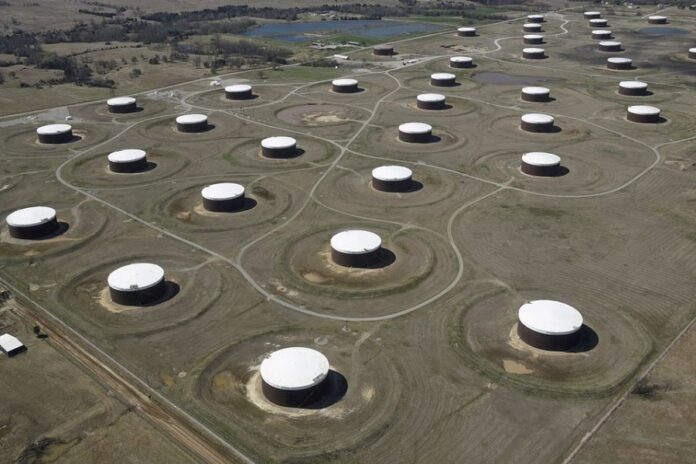Oil prices slipped on Monday after surging last week, with investors waiting to see if the Israel-Hamas conflict draws in other countries – a development that would potentially drive up prices further and deal a fresh blow to the global economy, according to Reuters.
Brent futures were last down 33 cents, or 0.4%, at $90.56 per barrel at 0645 GMT. U.S. West Texas Intermediate (WTI) crude fell 0.3% or 26 cents to $87.43 a barrel.
Both benchmarks climbed nearly 6% on Friday, posting their highest daily percentage gains since April, as investors priced in the possibility of a wider Middle East conflict.
For the week, Brent advanced 7.5% while WTI climbed 5.9%.
“Investors are trying to figure out the impact of the conflict while a large-scale ground assault has not begun after the 24-hour deadline that Israel first notified residents of the northern half of Gaza to flee to the south,” said Hiroyuki Kikukawa, president of NS Trading, a unit of Nissan Securities.
“The impact that may involve oil-producing countries has been factored into the prices to some extent, but if an actual ground invasion were to occur and have an impact on oil supply, the prices could easily exceed $100 a barrel,” he said.
The conflict in the Middle East has had little impact on global oil and gas supplies, and Israel is not a big producer.
But the war between Islamist group Hamas and Israel poses one of the most significant geopolitical risks to oil markets since Russia’s invasion of Ukraine last year, amid concerns about any potential escalation involving Iran.
Market participants are assessing what a wider conflict might imply for supplies from countries in the world’s top oil producing region, including Saudi Arabia, Iran and the United Arab Emirates.
If Tehran is found to be directly involved in the Hamas attack, it would likely result in the U.S. fully enforcing its sanctions on Iran’s oil exports, Commonwealth Bank of Australia analyst Vivek Dhar said in a note on Monday.
“The U.S. has turned a blind eye on its sanctions on Iran’s oil exports this year as it looked to improve diplomatic ties with Iran,” he said.
“The 0.5-1 million barrels per day increase in Iran’s oil exports this year – equivalent to 0.5-1% of global oil supply – is at risk of being sidelined if U.S. sanctions are enforced in full.”
Israel’s Prime Minister Benjamin Netanyahu vowed on Sunday to “demolish Hamas” as his troops prepared to move into the Gaza Strip in pursuit of Hamas militants whose deadly rampage through Israeli border towns shocked the world.
Iran warned on Saturday that if Israel’s “war crimes and genocide” are not stopped then the situation could spiral out of control with „far-reaching consequences.”
With fears of the conflict escalating, U.S. Secretary of State Antony Blinken will return to Israel on Monday to talk “about the way forward” after several days of shuttle diplomacy between Arab states.
The U.S. last week imposed the first sanctions on owners of tankers carrying Russian oil priced above the G7’s price cap of $60 a barrel, an effort to close loopholes in the mechanism designed to punish Moscow for its invasion of Ukraine.
Russia is one of the world’s top crude exporters, and the tighter U.S. scrutiny of its shipments could curtail supply.


